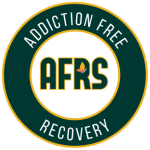Choosing the right treatment facility for substance abuse can be one of the most crucial decisions in the recovery process. It’s a journey that can feel overwhelming, especially when emotions are running high, and the stakes are significant.
Essential Takeaways
- Selecting the Right Facility is Crucial for Recovery Success: Finding a treatment facility that aligns with an individual’s specific needs—such as type of substance, treatment approach, and support services—can significantly influence the success of their recovery journey.
- Accreditation and Specialization Matter: Ensure the facility is accredited and has experience in treating the specific substance abuse issue you or your loved one is facing. This expertise can enhance the effectiveness of the treatment program.
- Aftercare is Vital for Long-Term Sobriety: A strong aftercare program that provides ongoing support and resources can help individuals navigate the challenges of post-treatment life, reducing the risk of relapse and promoting sustained recovery.
With so many options available, understanding what to look for can make a world of difference. So, let’s navigate through this together, exploring everything you need to know about finding the right treatment facility that suits your needs or those of a loved one.
Understanding Substance Abuse Treatment Options
Types of Treatment Facilities
When considering treatment for substance abuse, it’s essential to understand the different types of facilities available. Each offers unique services, approaches, and levels of care. Here’s a breakdown of the main types:
Inpatient Facilities | These are residential programs where individuals stay on-site for treatment. This type of facility provides 24/7 care, which can be beneficial for those with severe addictions or co-occurring mental health issues. The immersive environment helps individuals focus solely on their recovery without the distractions of daily life. |
Outpatient Facilities | Unlike inpatient programs, outpatient facilities allow individuals to live at home while attending treatment sessions. This flexibility can be ideal for those with home or work responsibilities. Outpatient programs vary in intensity; some offer several hours of therapy each week, while others may be less demanding. |
Detox Centers | Detoxification centers specialize in helping individuals safely withdraw from substances. This can be a critical first step for those with severe dependencies. Detox facilities often focus on medical supervision and support during the withdrawal process, ensuring safety and comfort. |
Residential Programs | Like inpatient facilities, residential programs provide a home-like environment for individuals to live and receive treatment. These programs often incorporate holistic approaches and life skills training alongside traditional therapy. |
Treatment Approaches
Each treatment facility may offer various approaches to substance abuse treatment. Understanding these methods can help you choose the best fit for your needs:
- Cognitive-Behavioral Therapy (CBT). This widely used approach helps individuals identify and change negative thought patterns and behaviors associated with substance use. CBT can be particularly effective in preventing relapse by teaching coping strategies.
- Holistic Methods. Many facilities incorporate holistic approaches, including yoga, meditation, and nutritional counseling. These methods address the whole person—mind, body, and spirit—fostering overall well-being.
- 12-Step Programs. Based on the principles of Alcoholics Anonymous (AA), 12-step programs emphasize community support and personal responsibility. Many treatment facilities integrate these programs into their treatment plans, helping individuals build a support network.
Factors to Consider When Choosing a Treatment Facility
Accreditation and Licensing
One of the first things to look for when evaluating treatment facilities is their accreditation and licensing. Accreditation from reputable organizations, such as the Joint Commission or the Commission on Accreditation of Rehabilitation Facilities (CARF), indicates that the facility meets specific quality standards in patient care. These credentials provide peace of mind that the facility operates within a framework of best practices.

Licensing is equally essential. Each state regulates substance abuse treatment facilities, and being licensed ensures the facility complies with state laws and regulations. Don’t hesitate to ask about a facility’s credentials—this information is crucial for your safety and well-being.
Facility Location
Location can play a significant role in the effectiveness of treatment. While some individuals prefer facilities close to home for support, others may benefit from being away from familiar surroundings and triggers. Consider the following when evaluating location:
- Local Facilities. Being near family and friends can provide much-needed support during recovery. If you choose a local facility, ensure it has a strong reputation for quality care.
- Distant Facilities. For some, traveling to a facility away from home can create a fresh start, reducing exposure to triggers and negative influences. Distant facilities often offer serene environments that can be conducive to healing.
Specialization and Expertise
Every individual’s journey to recovery is unique, and finding a facility that specializes in specific substances or demographics can significantly impact the effectiveness of treatment. Here are some factors to consider:
- Substance Specialization. Some facilities focus on specific substances, such as alcohol, opioids, or stimulants. If you or your loved one is struggling with a particular substance, finding a facility with expertise in that area can provide targeted care.
- Demographic Focus. Certain facilities cater to specific populations, such as teens, women, or veterans. Programs designed for these groups often address unique challenges, creating a supportive and understanding environment.
Financial Considerations
Insurance Coverage
Navigating the financial aspects of treatment can feel daunting, but it’s crucial to understand your insurance coverage. Many facilities accept insurance, which can significantly reduce out-of-pocket expenses. Here’s how to approach this:
- Verify Coverage. Before committing to a facility, check whether your insurance covers substance abuse treatment. Most insurance providers have specific networks, so verifying if the facility is in-network to maximize benefits is essential.
- Pre-Authorization. Some insurance companies require pre-authorization for treatment. Ensure you understand your plan’s requirements to avoid unexpected costs.
Cost of Treatment
While insurance can help, understanding the overall cost of treatment is vital. Treatment costs can vary widely based on the type of facility and the services offered. Here’s a general breakdown:
| Inpatient Programs | Depending on the facility’s amenities and services, a 30-day program can cost from $6,000 to $30,000. |
| Outpatient Programs | Outpatient treatment can cost between $1,000 and $10,000, depending on the intensity and frequency of services. |
| Detox Centers | Detoxification costs may vary significantly, generally ranging from $300 to $800 per day, depending on the level of medical supervision required. |
| Financial Aid Options | Many facilities offer financial assistance or sliding-scale fees based on income. If cost is a concern, it’s worth asking about these options. |
Evaluating Treatment Programs
Length of Program
The length of treatment is another vital factor to consider. While many programs offer 30-day stays, research indicates that longer treatment durations often lead to better outcomes. Here’s what to know:
- 30-Day Programs. Suitable for individuals with mild to moderate addictions, these programs can provide a foundation for recovery but may not be sufficient for severe dependencies.
- More extended programs. Many facilities offer 60- or 90-day programs, allowing individuals more time to address underlying issues and develop coping strategies. Extended programs often include more comprehensive aftercare planning, crucial for sustained recovery.
Aftercare Support
Aftercare support plays a significant role in preventing relapse. A facility emphasizing aftercare will help individuals transition to daily life and maintain sobriety. Consider the following:
- Aftercare Services. Many facilities offer follow-up programs, support groups, and outpatient therapy to help individuals stay connected after treatment.
- Alumni Programs. Some facilities have alumni networks that provide ongoing support and community engagement, which can be invaluable in maintaining sobriety.
Visiting the Facility
What to Look For During a Visit
Visiting a treatment facility is an excellent way to assess whether it fits. Here’s a checklist of things to observe during your visit:
- Cleanliness. A well-maintained facility indicates a commitment to health and safety.
- Staff Interactions. Pay attention to how staff interact with patients. Compassionate and respectful staff can create a supportive environment.
- Environment. The atmosphere of the facility can significantly impact recovery. Look for a comfortable and welcoming environment.
Questions to Ask Staff
Don’t hesitate to ask questions during your visit. Here are some essential inquiries to make:
- Staff Qualifications. What are the qualifications of the treatment team? Are they licensed and experienced in substance abuse treatment?
- Treatment Philosophy. What is the facility’s approach to treatment? Do they incorporate evidence-based practices?
- Patient-to-Staff Ratio. What is the ratio of patients to staff? A lower ratio often means more individualized attention.

Trust Your Instincts
Listen To Your Instinct
Choosing a treatment center is such an intimate decision, and trusting your gut feelings is the best choice. If it doesn’t feel right during the visit or you have doubts about the facility, trust your instincts and look elsewhere. This is about you or your loved one’s recovery and requires feeling comfortable and safe.
Seek Counsel
Seek recommendations from reliable sources. Health professionals, support groups, or friends who have experienced other treatment facilities can provide many informative insights. Personal experiences can help highlight facilities that may not have received much publicity.
Final Thoughts
Choosing the right drug rehab center is a crucial step in recovery. With such knowledge, key considerations, and trust in your instincts, you will make the right decision leading to sustained sobriety. It is important to find a place where things click for you, be it the type of treatment needed, the location of the facility, or the approach used.
If you or someone you care about is ready to take that final step toward recovery, start searching for treatment centers in your area today. Contact helplines or support groups for advice and guidance in making this decision. Remember: You Are Not Alone On This Journey Help Is Available, And Recovery Is Possible.
FAQs
- What types of treatment facilities are available for substance abuse?
There are various types of facilities, including inpatient, outpatient, detox centers, and residential programs, each offering different levels of care.
- How do I know if a treatment facility is accredited?
Look for accreditation from reputable organizations such as the Joint Commission or CARF. You can also verify licensing with your state’s regulatory body.
- Is insurance likely to cover treatment costs?
Many insurance plans cover substance abuse treatment, but you must check with your provider to understand your coverage and any out-of-pocket costs.
- What should I consider regarding the location of the treatment facility?
Consider whether you prefer a local facility for support or a distant one for a fresh start. The location can impact recovery outcomes.
- Why is aftercare support important?
Aftercare support helps individuals transition back to daily life and maintain sobriety, significantly reducing the risk of relapse.


























